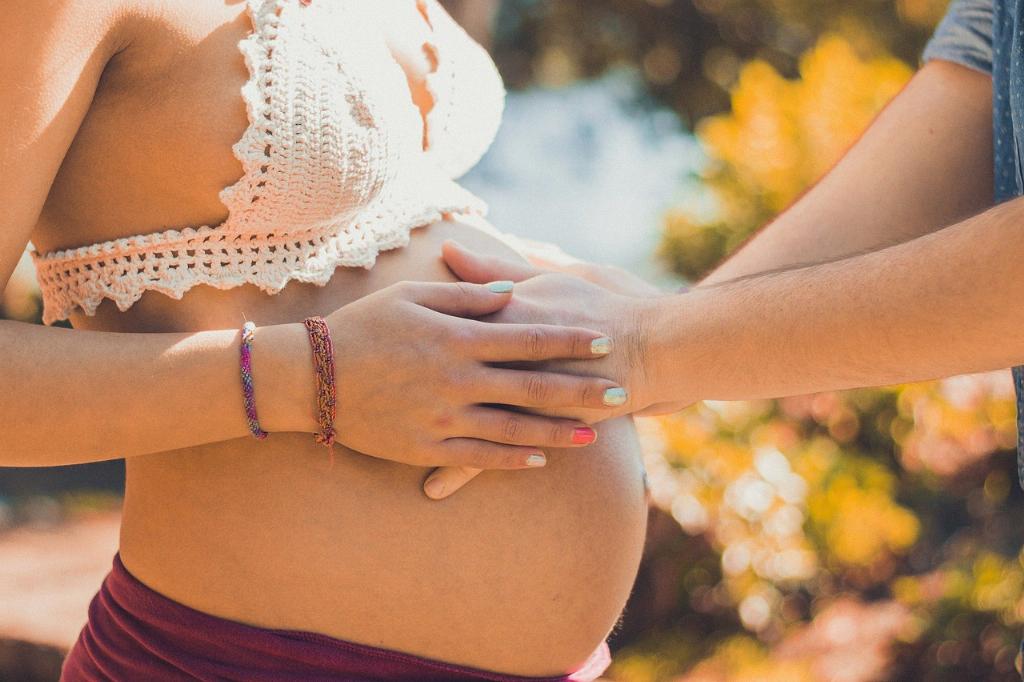Discovering you might be pregnant can bring about a whirlwind of emotions and physical changes, especially in the early days of pregnancy. Many individuals experience a variety of symptoms that can indicate the beginning of this incredible journey. Let’s delve into the common signs that might suggest you are in the early stages of pregnancy.
1. Missed Period
One of the classic indications that you might be pregnant is a missed period. For many individuals, this absence of menstruation can be the first clear signal that a baby might be on the way. It often prompts them to consider taking a pregnancy test to confirm their suspicions.
2. Positive Pregnancy Test
Most pregnancy tests on the market today are highly sensitive, capable of detecting pregnancy hormones shortly after a missed period. A positive result on a home pregnancy test can provide quick reassurance that a new chapter in life may be beginning.
3. Fatigue
Feeling more tired than usual is a common symptom in the early days of pregnancy. The body is working hard to support the growth and development of the fetus, leading to increased fatigue for many individuals. Taking naps or getting extra rest may become essential.
4. Bloating
Some people experience bloating or feelings of fullness in the early stages of pregnancy. Hormonal changes and the body’s preparation for pregnancy can lead to this uncomfortable sensation, leaving some individuals feeling a bit more swollen or “full” than usual.
5. Increased Urination
Another early sign of pregnancy is the need to urinate more frequently. This occurs due to the increase in blood flow to the kidneys and the expanding uterus placing pressure on the bladder. Many individuals find themselves making more trips to the bathroom each day.
6. Mood Swings
Hormonal fluctuations can also have a significant impact on emotions. Mood swings are a common occurrence in early pregnancy, with some individuals feeling elated one moment and tearful the next. Recognizing and accepting these changes can help navigate this emotional rollercoaster.
7. Nausea
Morning sickness, or nausea and vomiting, often associated with pregnancy, can start as early as the first few weeks after conception. The exact cause of this symptom is not fully understood, but it is believed to be related to hormonal changes affecting the body’s digestive system.
8. Tender Breasts
Changes in hormone levels during early pregnancy can lead to breast tenderness or swelling. Some individuals may find that their breasts feel more sensitive, sore, or even tingly. This symptom can vary in intensity from person to person.
9. Food Aversions or Cravings
Changes in taste and smell preferences are also common in early pregnancy. Some individuals may develop aversions to certain foods they used to enjoy, while others may experience intense cravings for specific flavors or textures. These changes can be quite surprising for some individuals.
10. Headaches
Some individuals report experiencing headaches in the early days of pregnancy. Hormonal fluctuations, changes in blood circulation, and increased stress levels can contribute to the onset of headaches during this time. Ensuring adequate hydration and rest may help alleviate this symptom.
11. Dizziness
Feeling lightheaded or dizzy can also be a symptom of early pregnancy. Changes in blood pressure and circulation, as well as the body adjusting to the physiological demands of pregnancy, can sometimes lead to these sensations. Taking things slowly and getting up gradually can help manage dizziness.
12. Emotional Rollercoaster
Overall, the early days of pregnancy can be filled with a mix of physical symptoms and emotional changes. It’s essential to listen to your body, seek support from loved ones, and consult with healthcare providers if you have concerns about your pregnancy symptoms. Remember, every pregnancy is unique, and what you are experiencing may differ from others.

